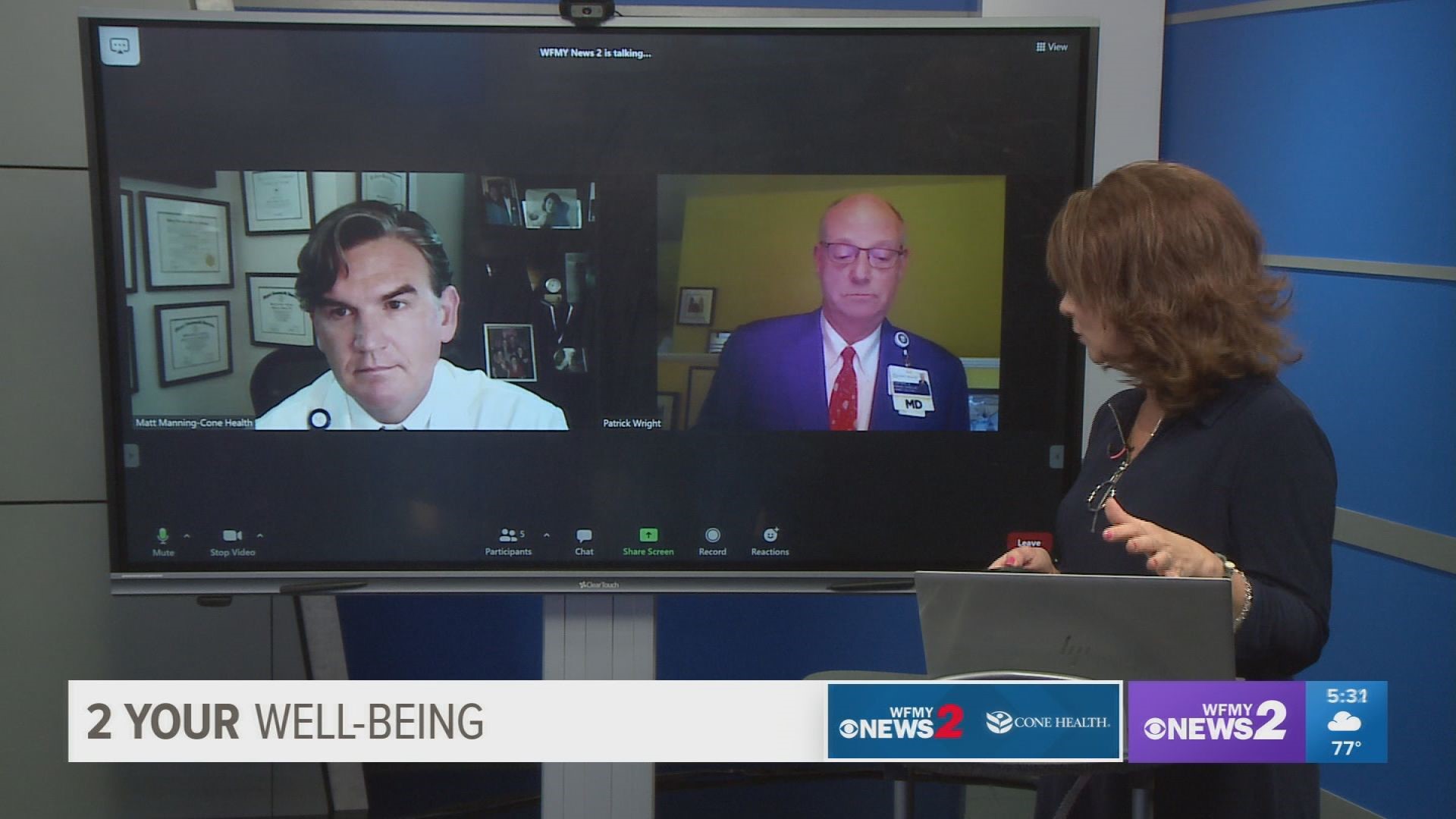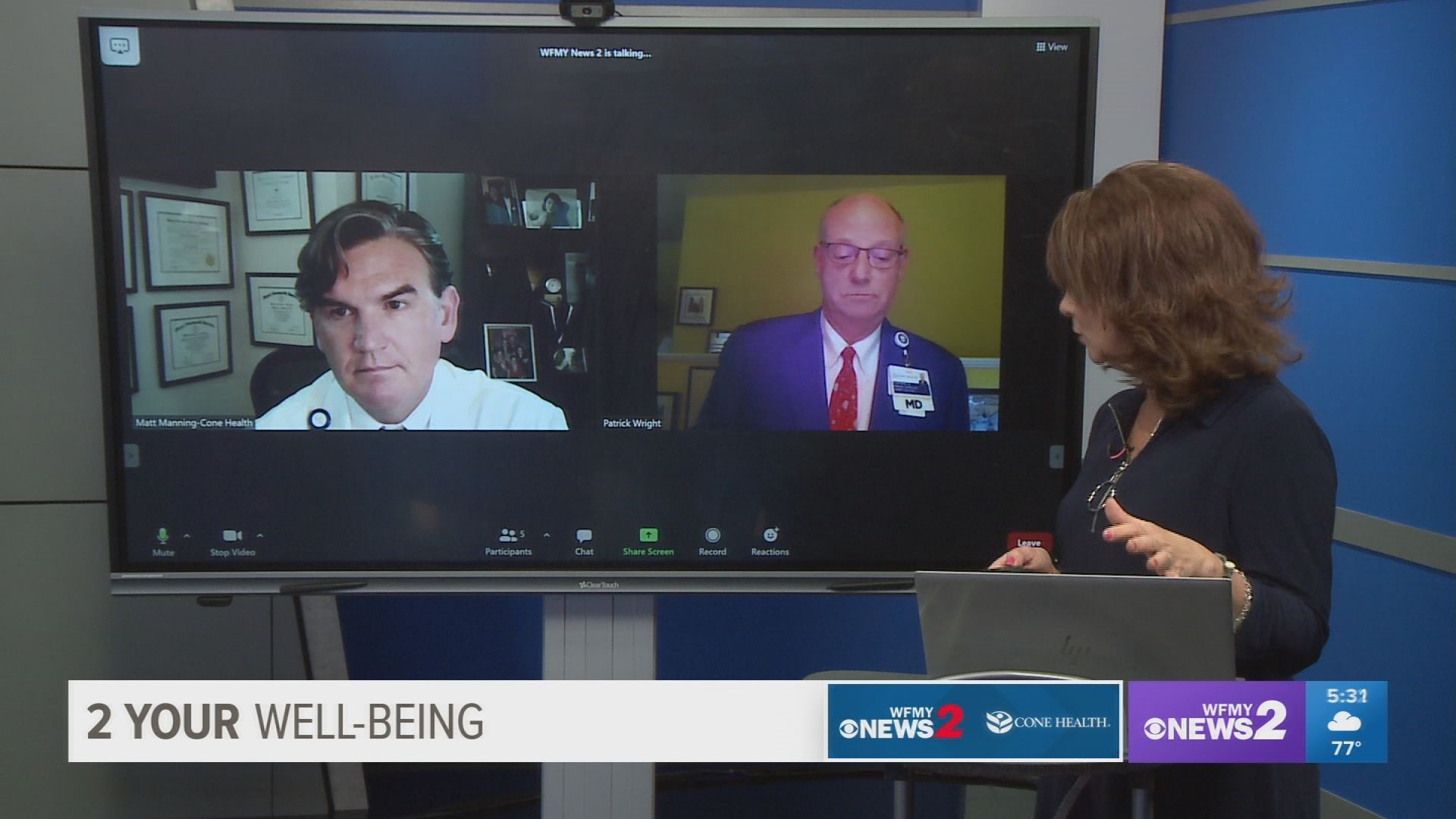GREENSBORO, N.C. — During this pandemic, we've all been so focused on keeping ourselves safe from COVID-19, we've let other important health concerns fall through the cracks.
Screenings like mammograms and annual physicals are as important as they were before.
Doctor Patrick Wright, Medical Director of Cone Health's Mobile Health Program, and Doctor Matt Manning, Chief of Oncology, join 2 Wants to Know to discuss your health.
Let’s review the importance of physicals, screenings, when to get what and a new option available at Cone Health on wheels.
A patient will be screened for high blood pressure, chronic health conditions. Many of these conditions are asymptomatic in early stages. Preventative exams can be ordered as well as vaccines.
Someone shouldn't go longer than a year without a screening.
During the pandemic, many adults may have gotten off schedule with screenings, such as mammograms, colonoscopies. How concerning is it that people may be out there with undiagnosed conditions that could have been diagnosed with these screenings and already started treatment?
The American Cancer Society projects 22 million cancer screenings were missed in 2020. Cancer screenings are an important tool in protecting people from cancer. Dr. Manning says it's estimated that 12,000 women are saved each year with screenings. The Cone Health network diagnoses between 80 and 100 new breast cancer cases each month in mammogram units.
What are the recommendations for cancer screenings (such as mammograms, colonoscopies, etc.)?
- The American Cancer Society recommends breast cancer screenings at age 40 for women and mammographies no later than age 45.
- Colon and rectal cancer screenings should begin at age 45 for average risk patients.
- Cervical cancer screenings should start at age 25
- Lung cancer screenings start at age 55 for smokers
- Men should talk to their doctors about prostate cancer screenings at age 50, or 45 if they're African American or have a family history.
When should people get their cholesterol, blood sugar checked, eye/vision screenings?
- Cholesterol: Anyone over age 20 should get their cholesterol checked every four to six years. Even children and adolescents can get theirs checked.
- Blood sugar: People over 45 should get their sugar checked every three years at minimum.
- Eye screenings: Pediatricians can check children's eyes at six months, and at school entry age. Adults 18 and up should get their eyes checked every two years. 61 and over should check their vision yearly.


